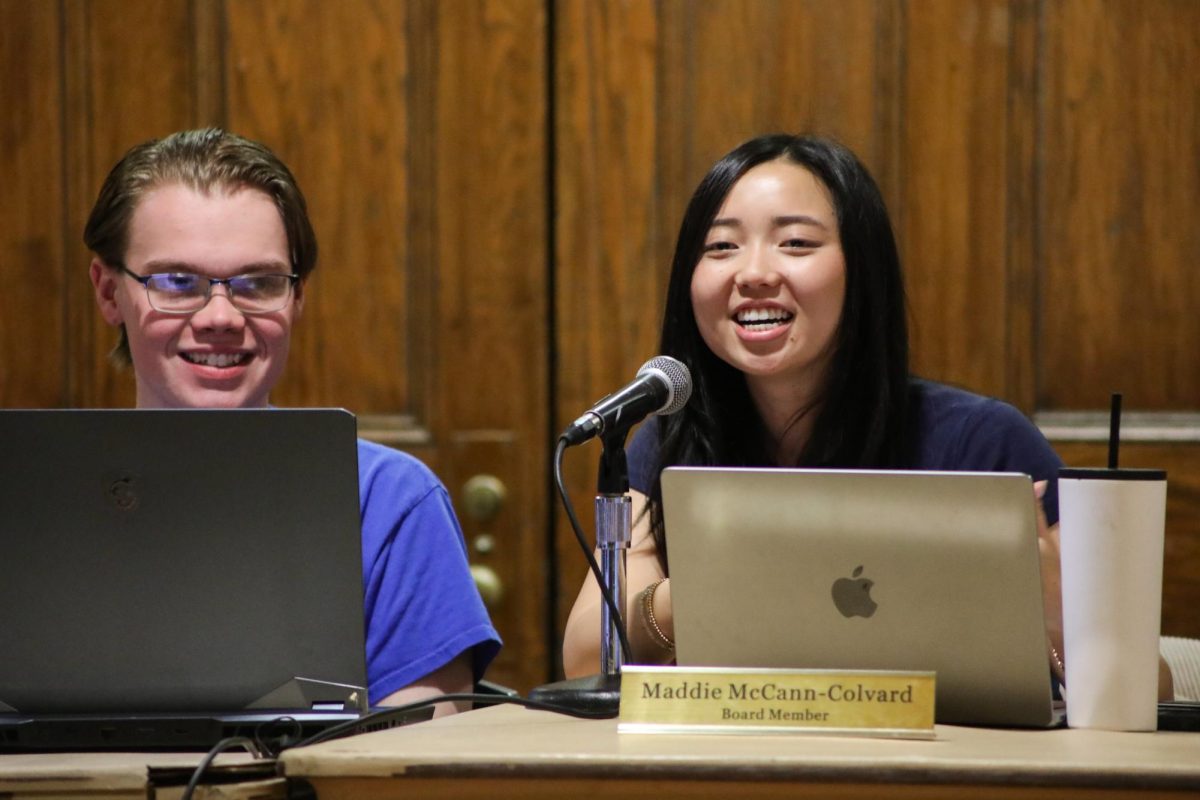Opinion | TikTok babies are a dilemma with no clear answer
April 6, 2022
Before they can even say the word “video,” twins Scout and Violet Knight have garnered more than five million fans on TikTok. Their mother, Maia Knight, films the twins almost every day and discusses her challenges raising them as a single mom.
As these videos gained popularity, Knight’s social media turned into her full-time job — allowing her to financially support her daughters while spending time with them at home. Knight is not alone in raising children who are TikTok famous before they can say “TikTok” — she is one of many parents who are posting videos of their babies for fortune and fame.
Something doesn’t feel right about a parent monetizing their child’s private life on social media — especially when some children aren’t given a choice in whether their life is displayed on the internet. After closer examination, the dangers seem to outweigh the benefits of fame.
Parents monetize their child’s labor in industries other than social media. Farmers’ children work for them — sometimes without a wage. Children can also work for an unlimited number of hours in a family business. Even in the entertainment business, some child actors’ parents have taken an unfair share of their income.
But should TikTok children be put in this same category — especially if they would do the same action if they weren’t being filmed?
Ultimately, since young children are the subjects of videos that generate revenue, they’re doing labor. Even if they choose to do the actions, the fact that they’re generating revenue doesn’t change. This opens up a realm of legal complications since child labor laws haven’t adapted to child influencers’ unusual working conditions.
Child actors have legal protections keeping them safe at work. When a performing arts company employs children or babies, they must adhere to workplace safety measures and comply with child labor laws that prevent children from working too many hours.
These standards are almost impossible to impose on famous TikTok children who would seem to work at home for an unlimited number of hours. Parents can film their child at bedtime, mealtime and playtime — making it difficult to limit and quantify how much work a child does each day in order to make fair safety regulations.
Experts agree that overdocumentation can affect a child’s life, including making them feel overly important and excessively critical of themselves. Around age 4 or 5, children already have a sense of self — meaning social media can influence how they act and perceive themselves. Also, posting countless pictures and videos of a child puts them at significant risk for identity theft, fraud and exploitation.
At its core, social media is a showcase of what the creator wants others to know about their life. But millions of people view TikTok babies’ daily lives seemingly without their consent on what content they want the world to see.
Unlike with child actors, for famous children on TikTok, there is very little — if any — separation between their real life and their life on camera. They are the “characters” that fans are interested in — their fame is built on a seeming breach of their privacy. They are brought into the world, put in front of a camera and are forced to deal with the consequences.
It is easy for me, an outsider to each family’s financial situation, to decide that parents should stop making their children TikTok famous until there are more safety protections. But children reap significant benefits from this fame which complicates how to evaluate the costs and benefits of children on social media.
Ultimately, posting on social media should be a choice — and that is taken away from many TikTok babies.
Talia Spillerman writes about anything and everything. Write to her at tns26@pitt.edu.



